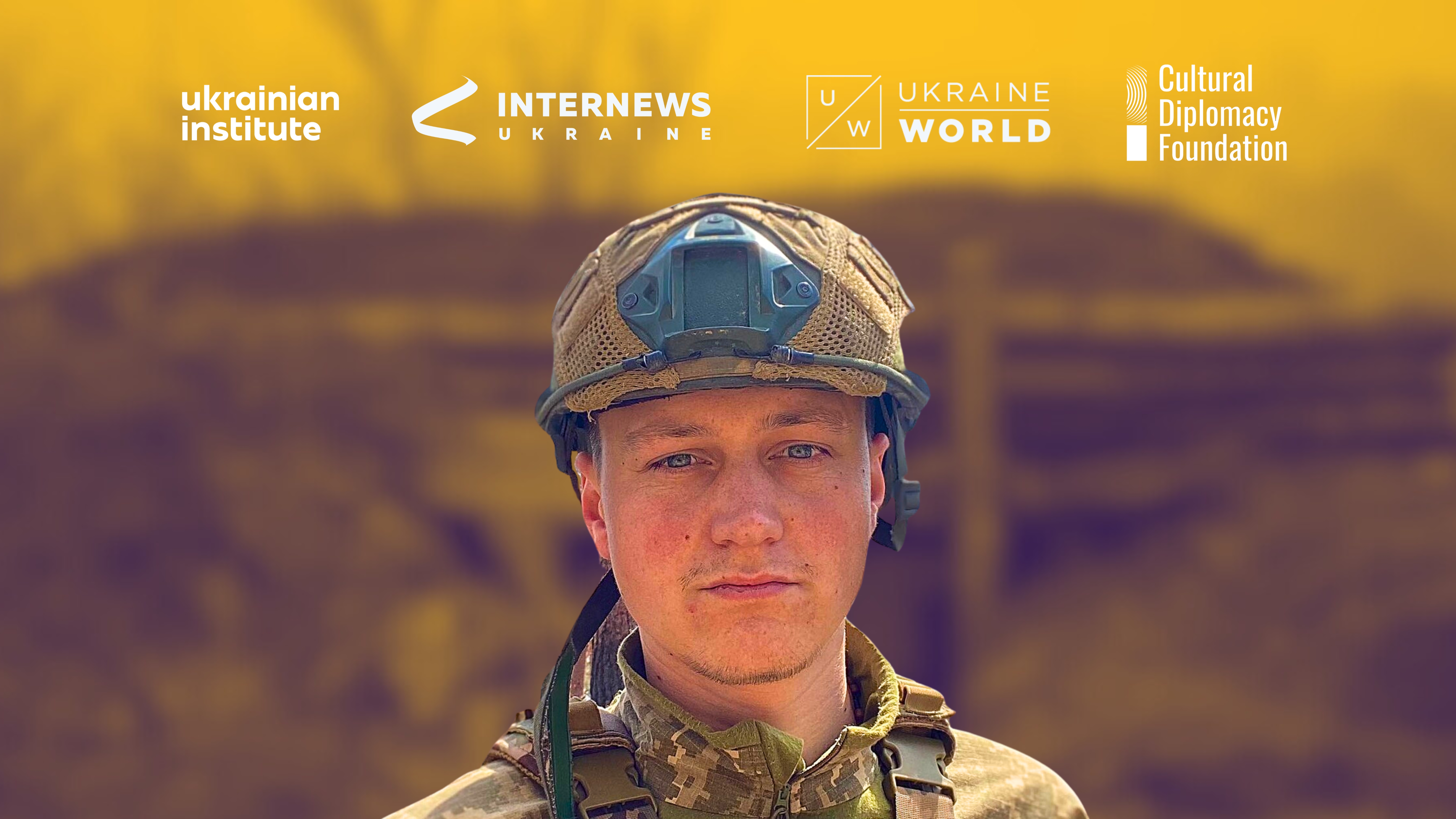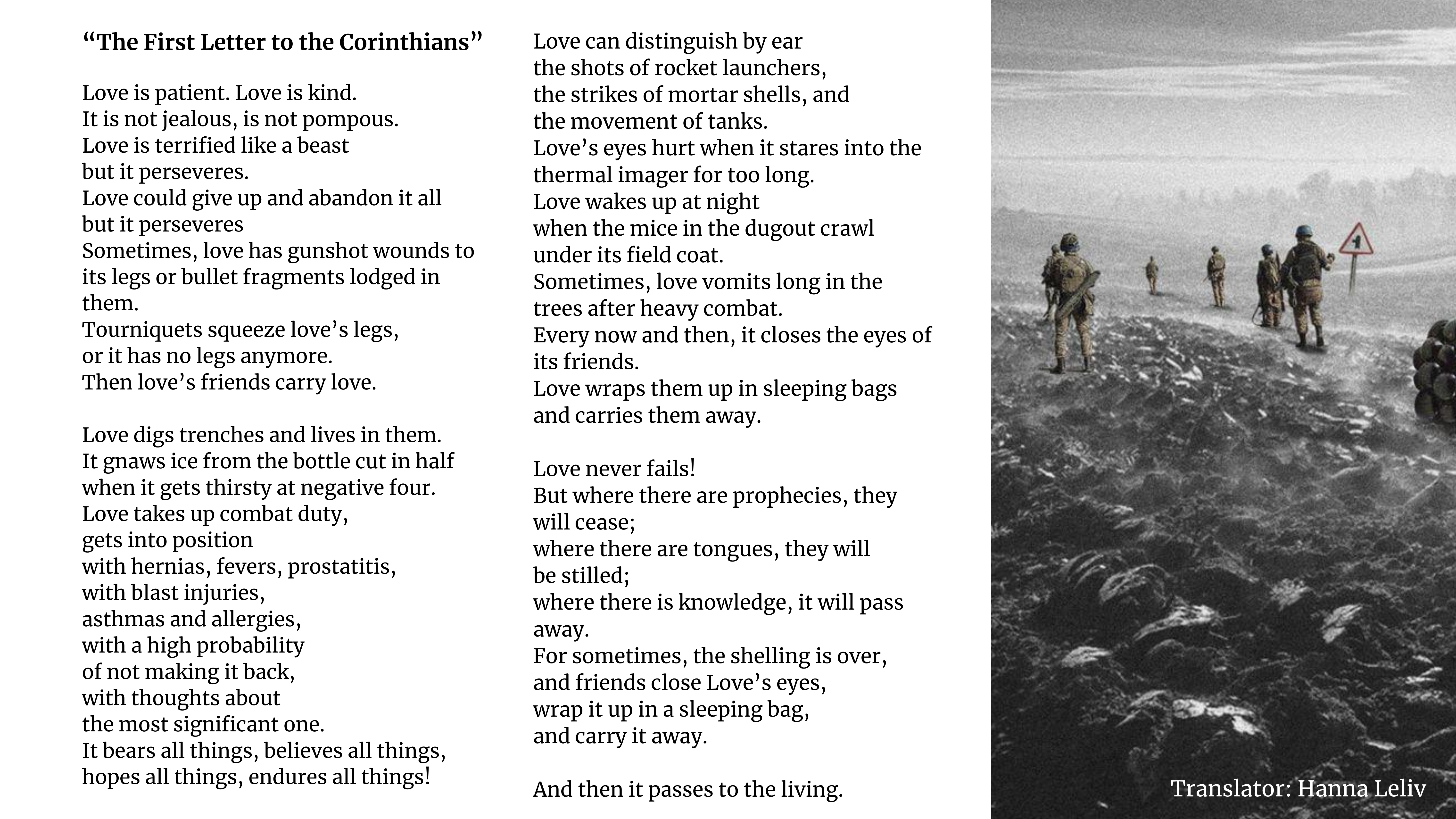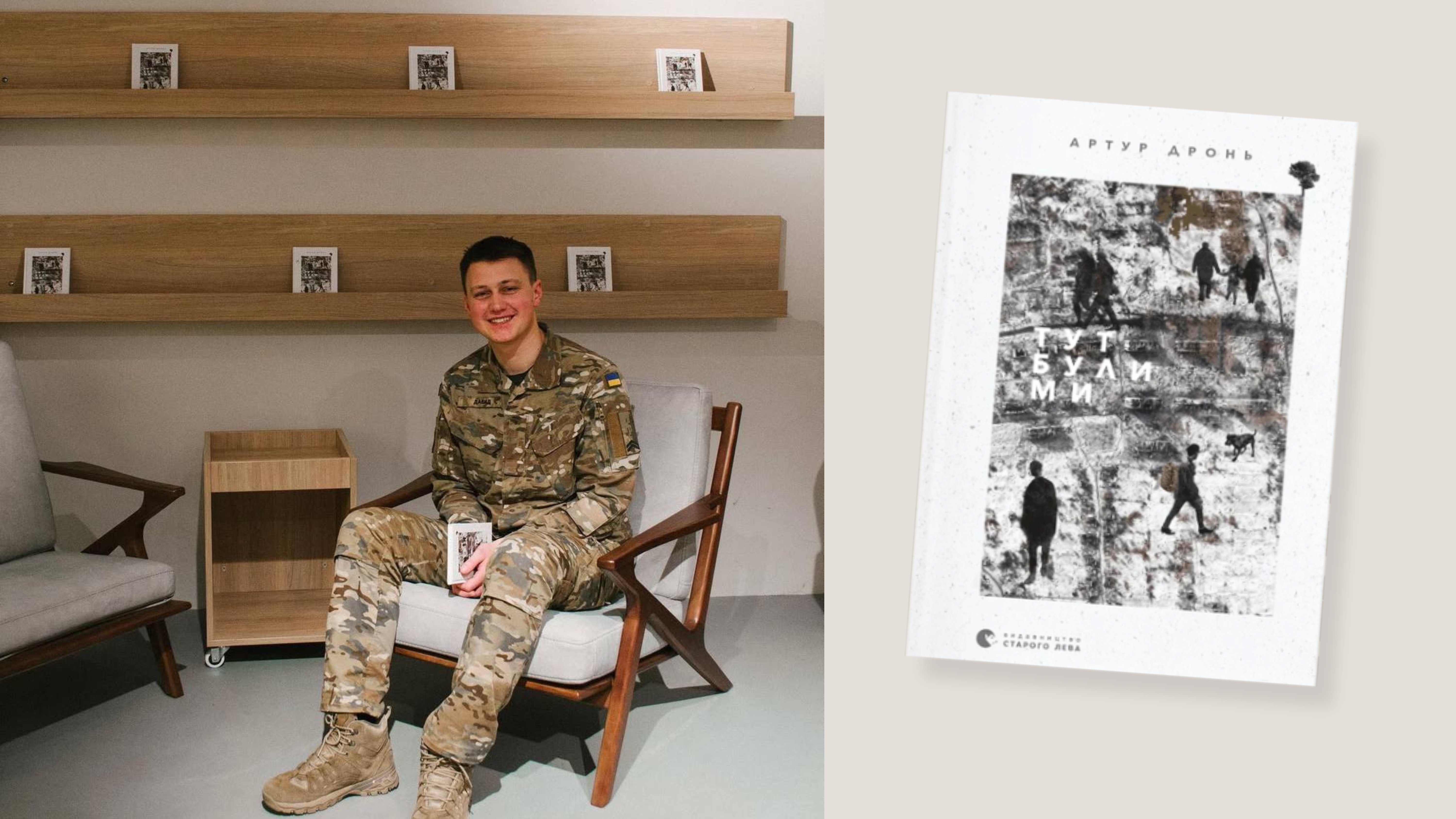
Artur Dron — Ukrainian journalist, writer, poet, and serviceman, call sign "Davyd".
Artur voluntarily joined the Armed Forces of Ukraine at the start of the full-scale invasion. He first carried out combat missions in the Kharkiv sector before his brigade was redeployed to the Zaporizhzhia front.
On October 31, near Levadne, he sustained a severe shrapnel injury. According to Artur, the most serious was the hand trauma—a bone fracture and a torn nerve. He is currently undergoing rehabilitation. He has already undergone nerve transplant surgery, and the next step is restoring mobility and sensitivity in his fingers.
There were five of us, moving from one position to another. At first, we thought it was a drone, but most likely, it was a Russian anti-personnel mine. It detonated—we heard the explosion. None of us escaped unscathed. Two of my brothers-in-arms were killed, and three of us, including me, were wounded.
With the onset of the full-scale war, many Ukrainian poets had to discover a new language to write in. The trauma of new events could not be captured with old words.
I had always understood that poetry is a genre where every word carries immense weight—perhaps the greatest of all genres, given its brevity. But with the war, I realized that the weight and value of words had only increased.
There used to be a saying: "A poet's word carries weight." After Russia's full-scale invasion of Ukraine, that phrase takes on a different meaning. Now, you speak words that could be your last. It's not just about brevity and conciseness anymore - it's about the fact that you don't know what will happen tomorrow or even after you finish a poem.

I believe that approaching each text with the thought that you have only a few words left—and then, perhaps, nothing—gives this new language its greatest strength.
Poetry now should focus not on events but on the human being within those events—on how people live and die in them. When working with such difficult themes, it's crucial to avoid merely listing tragedies or describing suffering for the sake of it. That always reads as artificial, an attempt to captivate the reader through pain. It's hard to explain, but it's always felt.
To me, describing pain should never be the goal. The goal should be to outline light—something that stands in contrast to war's horrors, which will inevitably be present in the poem anyway.
Artur's poetry collection We Were Here was published in 2023. The poems were written on the front lines, but they are not about war. They are about people who love more than they fear. Jantar Publishing also issued an English translation of the book.

One of the poems is called Ivan. It tells the story of a man from a village who fought in the Anti-Terrorist Operation (ATO) and was later mobilized again during the full-scale invasion. While he was still serving in the rear, I once asked him about his dream. It turned out that no one had ever asked him that before.
He had lived his whole life in a village, worked as a supermarket security guard, took care of his mother, got divorced, drank from time to time... and only during the war was he finally asked about his dream. His answer? A bicycle.
At first, I found it a bit strange—how could a grown man in his forties dream of a bicycle? But he described it in such detail. He wanted it to have a basket so he could ride it to buy groceries.
I promised Ivan that I would buy him that bicycle after the war. Unfortunately, Ivan died in December 2022. The Russians took his life, along with his dream...and our dreams that were connected to him, and everything that could be taken, except his memory...the memory of his childlike sincerity and openness...and what we can do with this memory - write a poem, or tell someone this story.
Ivan also dreamed of having us, his brothers-in-arms, visit his home village. We did visit—but at the cemetery.
When we talk about the Ukrainian army, foreigners sometimes struggle to understand that these are not career soldiers with years of training. They are people who, just two weeks ago, were civilians—working ordinary jobs, reading about the war in the news—until they were forced to take up arms.
I believe literature can be a tool to tell stories like these, so readers can relate to the people behind them. Like Ivan—a man with dreams.
I'm not sure if I can clearly define my own dream right now. Maybe it's having a family, stability, a life without constant risk, more time with loved ones, peace, comfort. But since the war began, most Ukrainians share one common dream: an end to the fighting, victory, and a just peace.
Recently, Artur finished working on his first short prose collection. He hopes it will be published by early summer.
About two months ago, Artur got engaged. While he was carrying out combat missions on the front line, his fiancée was waiting for him at home in Lviv.
Calling this simply a "long-distance relationship" would be reductive. The key factor isn't the distance—it's the constant presence of danger. In some ways, being in the rear and worrying about a loved one can be even harder than being in the combat zone. Life at the front has its rhythms—there are intense moments on the battlefield, but also days of relative rest away from direct fire. A soldier's experience is divided into different phases, but for those waiting back home, it's just one long, unbroken stretch of fear.
For my mother and my fiancée, my time at war feels like a continuous danger. Phone calls and messages help, but the moment the call ends, the worry starts again. Once, I did not get in contact with my family for 15 days. Honestly, I think that kind of constant anxiety for a loved one would be even harder for me to bear than my military service itself.
Like many Ukrainian servicemen who temporarily or permanently return to civilian life, Artur faces a range of challenges associated with adjusting to the new reality.
After my injury, I was diagnosed with adjustment disorder. My psychological struggles now stem from the difficulty of transitioning between two different worlds. Therapy, antidepressants, sedatives, sleeping pills... My brothers-in-arms, who have been in civilian life for about eight months now, still can't sleep. And sleep deprivation only worsens anxiety and emotional instability. I've noticed that these symptoms peak when I'm on leave, in the relative calm of a rear city. However, compared to previous months, I'm now taking significantly fewer medications.
Artur believes that simple things can help in such situations—staying connected with loved ones and fellow soldiers, prayer for those who are religious, reading, quality sleep, learning something new that brings back a sense of "pre-war normalcy," and, most importantly, engaging in meaningful work.
Donating, volunteering—anything that makes you feel like you're playing a valuable role in this war.
This article was produced in partnership with the Ukrainian Institute, Ukraine's major cultural and public diplomacy institution, and NGO Cultural Diplomacy Foundation.
